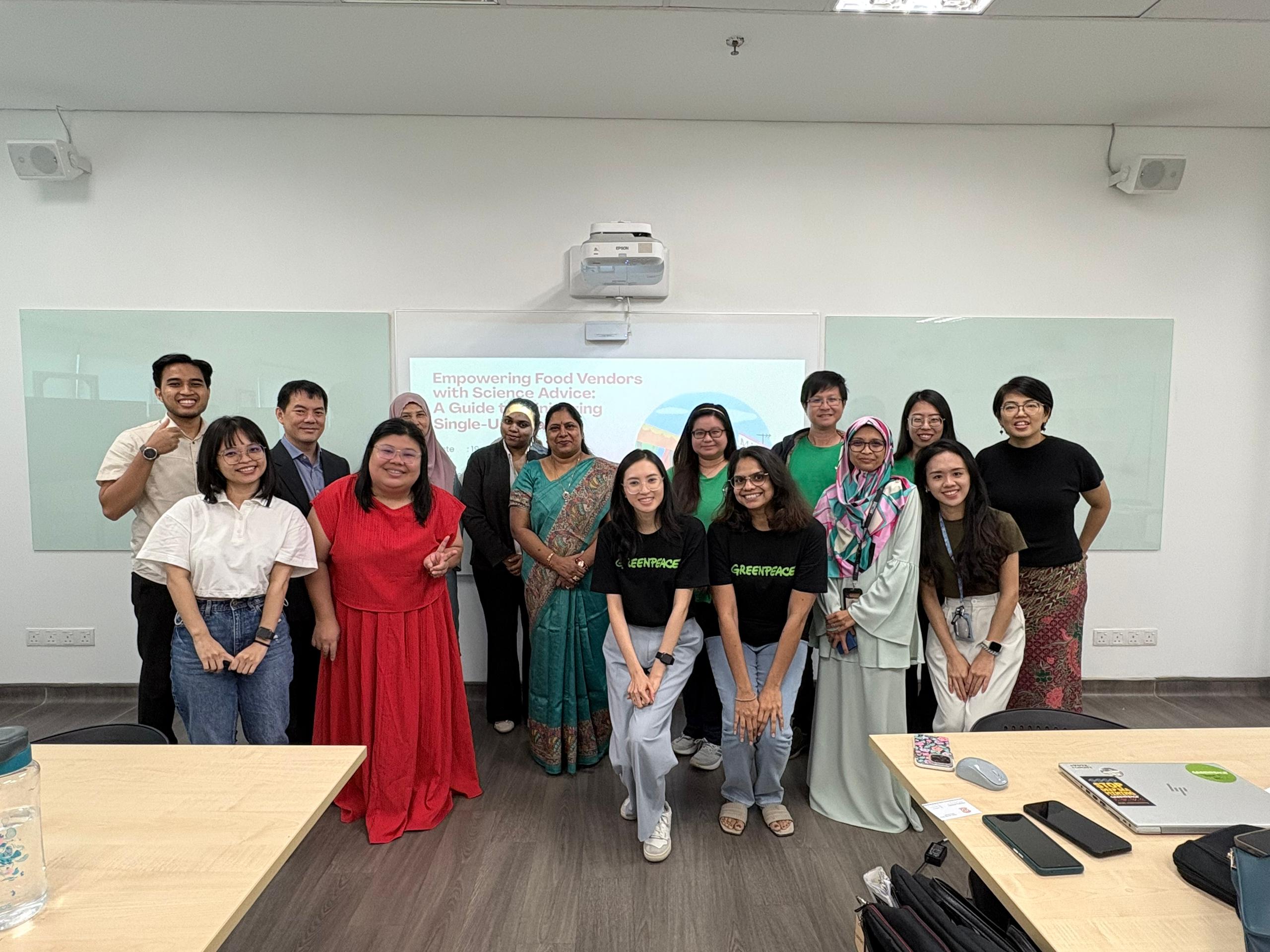Grassroots Workshop – Empowering Food Vendors with Science Advice: A Guide to Minimizing Single-Use Plastics – Malaysia, 2025
The workshop titled “Empowering Food Vendors with Science Advice: A Guide to Minimizing Single-Use Plastics” was held on 19 August 2025 at Sunway University. This workshop on reducing single-use plastics in the food vending sector was attended by representatives from academia, civil society, government, and international networks.
The workshop was supported by the International Network for Governmental Science Advice (INGSA)-Asia and the International Science Council Regional Focal Point for Asia and the Pacific (ISC RFP-AP), through the Grassroots Science Advice Promotion Awards 2024 program, awarded to Dr. Jane Gew Lai Ti. This workshop was mentored by Dr Kavita Shah, esteemed Steering Committee member of INGSA-Asia. Among the attendees were Prof. Ts. Dr. Tan Wee Hoe, Chair of INGSA-Asia, who delivered opening remarks and Aishwuriya Kunashankar, Regional Program Officer of INGSA-Asia.
The sessions focused on science communication related to single-use plastics, highlighting evidence of their environmental and health consequences. Invited speakers translated complex scientific findings into accessible language, underscoring the risks posed by plastic pollution to ecosystems, human well-being, and community health. Policy makers and waste management representatives contributed valuable insights, stressing the importance of locally grounded solutions and reinforcing the need for collaboration across multiple sectors.
The program opened with Assoc. Prof. Dr. Jane Gew Lai Ti presenting Science Advice for Sustainable Practices. This was followed by Ms. Hema Sulakshana (Greenpeace Malaysia) and Dr. Thing Siew Shuen, who unpacked the hidden costs of plastics. Terra Green shared their journey as a sustainable event organizer, while Ms. Lee Jen Uyin, Subang Jaya City Councillor, highlighted the value of partnerships with food vendors. The day concluded with an open discussion moderated by Prof. Kavita Shah (INGSA-Asia, India), reflecting on both achievements and ongoing challenges.
A highlight of the program was the introduction of the toolkit for minimizing single-use plastics in food vending practices. Designed as a practical resource, the toolkit offers step-by-step guidance on reducing dependence on plastics, exploring sustainable packaging alternatives, and communicating these practices effectively to customers. Participants provided thoughtful feedback, particularly event organizers who showed keen interest in applying the toolkit in upcoming fairs and community events. Their enthusiasm underlined the toolkit’s potential to create immediate impact even beyond food vending contexts.
A key challenge identified during the workshop is the lack of participation from food vendors. While academics, NGOs, policy makers, and organizers are driving discussions, the group most central to implementing change remains disengaged. Food vendors occupy a frontline role: every plastic container, straw, or bag used at a stall contributes directly to waste streams, clogged drains, and marine pollution. Beyond the environment, the health implications are equally serious. Microplastics are now found in seafood, salt, and even human stools, signaling long-term risks to community well-being. The workshop underlined that minimizing single-use plastics is the way forward to building a healthier, and more sustainable future.


